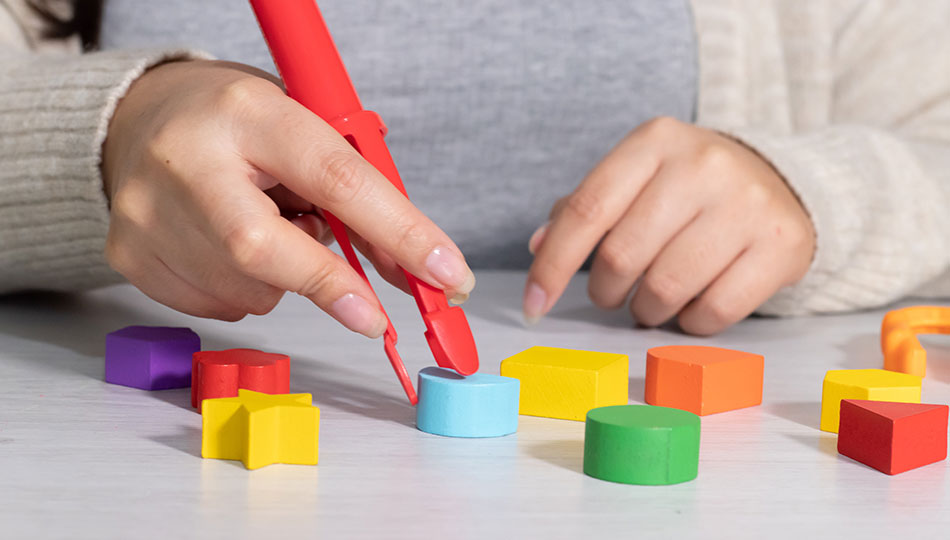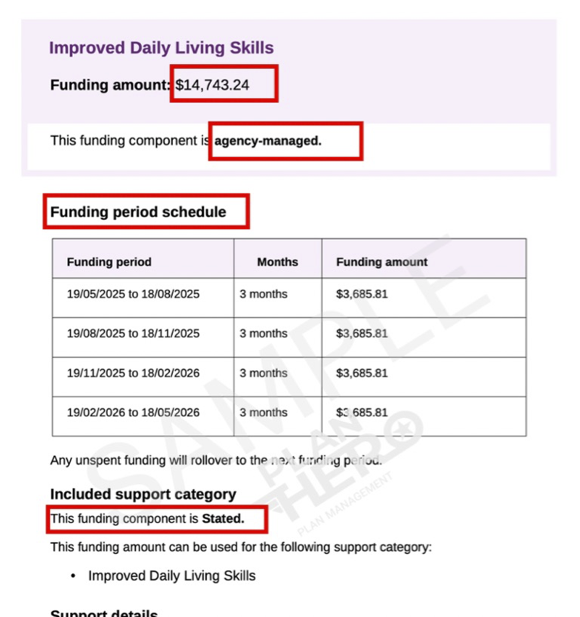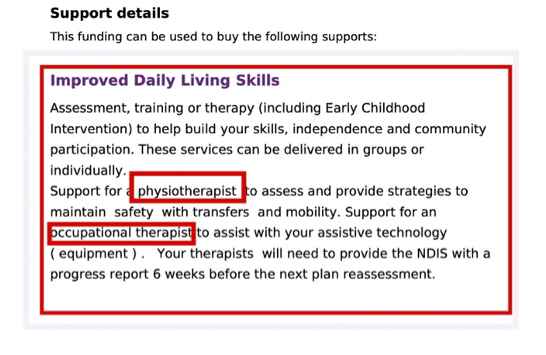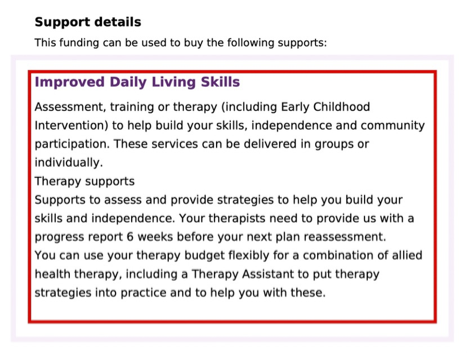
How to Find an Occupational Therapist in the NDIS
If you or someone you care for is living with disability, you may have heard about Occupational Therapy (OT) as part of NDIS supports.
But what exactly is Occupational Therapy, what does it help with, and how do you make sure you have the right funding in your NDIS plan?
At MyCareSpace, we connect NDIS Participants with the right supports every day. Here’s what you need to know about finding Occupational Therapy in the NDIS.
What is Occupational Therapy?
Occupational Therapy helps people build the skills they need for everyday life.
An “occupation” isn’t just about work, it means the activities that give our lives meaning and independence.
For one person, that may be showering or cooking. For another, it may be catching public transport, managing anxiety, or returning to a favourite hobby.
Occupational Therapist's assess your:
- abilities,
- environment,
- and goals,
And then provide:
- strategies,
- therapies,
- or equipment
to make daily activities easier and safer.
What Skills Can Occupational Therapists Help You Develop?
Occupational Therapists work across a wide range of skill areas, including (with the fancy names):
- Daily living skills. For example: dressing, eating, toileting, showering, or managing money.
- Mobility and motor skills. For example: improving balance, coordination, and strength.
- Cognitive and emotional skills. For example: planning, problem-solving, regulating emotions, or memory strategies.
- Community participation. For example: using public transport, joining social activities, or volunteering.
- Assistive technology and home modifications. For example: recommending equipment (like wheelchairs, shower chairs, or communication devices) or changes to your home to support independence.
What Goals Can You Achieve With Occupational Therapy?
With the right Occupational Therapy support, Participants often work toward goals such as:
- Increasing independence at home and in the community.
- Building confidence to try new activities or return to old ones.
- Building independence which means reducing reliance on carers and developing self-management skills.
- Supporting participation in school, work, or social groups.
- Enhancing safety and reducing risk of falls or injuries.
IMPORTANT: Your Occupational Therapy goals must always link back to the goals in your NDIS plan.
This is how you ensure the support you pay for is considered reasonable and necessary by the NDIS.
What NDIS Funding can I use for Occupational Therapy Funding in my NDIS Plan?
Occupational Therapy is funded under CAPACITY BUILDING and can also be funded under the CAPITAL (assistive technology and housing)categories of an NDIS plan :
Capacity Building – Improved Daily Living
- This is the most common category of funding that can be used to pay for Occupational Therapy in the NDIS.
- It covers therapy sessions, assessments, and skill-building.
Capacity Building – Improved Health & Wellbeing or Social & Community Participation
- This category is about helping participants build the knowledge, skills, and confidence to look after their health and live well.
1. Capacity Building – Improved Health & Wellbeing
Examples include:
-
Exercise Physiology or Personal Training. E.g. developing a tailored program to improve strength, balance, and fitness.
-
Dietitian support. E.g. learning how to meal plan, shop, and prepare healthy meals that suit personal needs.
-
Mental health support. E.g. sessions with a psychologist to build coping strategies, stress management skills, or emotional regulation.
-
Skill-building in daily routines. E.g. learning how to structure a morning routine that promotes better sleep and energy levels.
-
Programs for self-management. E.g. education on how to manage a chronic condition or disability to reduce reliance on crisis supports.
2. Capacity Building – Improved Social & Community Participation
This category helps participants develop the confidence, independence, and skills to join in community, social, and recreational activities.
Examples include:
- Social skills groups. E.g. practising communication and building friendships in structured settings.
- Support to access community activities. E.g. joining a local art class, gym, or music group with support to build independence over time.
- Mentoring or coaching. E.g. building confidence, self-advocacy, and community engagement strategies.
- Skill development courses. E.g. such as learning to use public transport, budgeting for social outings, or digital literacy for staying connected.
- Volunteering or pre-employment programs. E.g. to build community contribution skills and confidence.
Capital Supports – Assistive Technology or Home Modifications
- If your Occupational Therapy recommends equipment or changes to your home, the funding will usually come from Capital Supports.
- This requires a report from the Occupational Therapist and approval from the NDIS.
Tip: Although almost all plans include funding for therapy, not all plans automatically include funding for Occupational Therapy.
Make sure you read the 'support details' part of your Improved Daily Living supports (see below).
Examples of Occuptional Therapy Funding in your NDIS PACE plan
See an example of where you would find Occupational Therapy (OT) Funding in your NDIS plan under the Improved Daily Living Skills section of your plan.
Note in the example below:
- Total funding Amount of $14,743.24
- How this funding is managed (E.g. self, plan or agency) - in this example it is agency-managed
- Your Funding Periods (how often and the amount of funding you receive during your plan period)

Stated therapy in your NDIS PACE plan
Support Details are provided in your NDIS plan that tell you what you can spend this type of funding on.
See below an example of stated therapy in an PACE plan. This means you can only spend your therapy funding on the stated therapies: physiotherapy and Occupational Therapy.

Therapy that is not stated in your NDIS PACE plan
See below an example of therapy funding that is not specified in an NDIS PACE plan. This means you can spend this funding on any type of therapy/

How to Find the Right Occupational Therapist for You
Finding an Occupational Therapist can be overwhelming, especially if you’re new to the NDIS.
Not all Occupational Therapist's specialise in the same areas—some may focus on children, while others specialise in neurological conditions, mental health, or home modifications.
There is also currently a shortage of Occupational Therapists in the NDIS, so you will need help in finding an Occupational Therapist who has capacity in your local area.
At MyCareSpace, we make it simple: we match you with Occupational Therapists who:
- have availability,
- hagve experience with your disability, and
- have an understanding of your funding category.
We also check practical things like whether they can see you at home, in the community, or via telehealth.
No one else in Australia can do this!.
Occupational Therapy can open doors to greater independence and confidence. It’s about more than therapy—it’s about living the life you want, with the right supports in place.
If you’re not sure where to start, or if your plan covers Occupational Therapy, MyCareSpace can help you understand your funding, connect you with the an Occupational Therapy who has capacity for you today, and support you through the process.
NDIS THERAPY FINDER - FREE SERVICE
LET US FIND YOU A SKILLED SUPPORT WORKER

